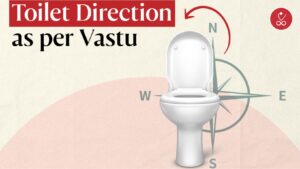Whether you’re starting a landscaping business, managing a construction job, or just need a dependable way to haul heavy materials around your property, a tipper trailer could be the ideal addition to your equipment. tipped trailer Designed to simplify loading and unloading bulk materials like soil, gravel, sand, or debris, tipper trailers are essential for contractors, farmers, and tradespeople alike.
If you’re considering buying your first tipper trailer, this easy-to-follow guide covers what a tipper trailer is, the different types you can choose from, and the key factors to keep in mind before purchasing.
What Is a Tipper Trailer?
Also known as a dump trailer, a tipper trailer uses a hydraulic system to lift the trailer bed, allowing materials to be dumped out effortlessly. Instead of manually shoveling heavy loads, the trailer tilts so gravity does the hard work.
Commonly used in construction, agriculture, landscaping, and waste management, these trailers help save time, reduce physical strain, and increase productivity on the job.
Types of Tipper Trailers
Choosing the right trailer depends on your needs and the space you have available. Here are the main types:
-
Rear Tipper Trailers: These trailers tip the bed backward to unload. Perfect for open areas, they’re frequently used for transporting sand, soil, and gravel.
-
Side Tipper Trailers: Instead of tipping backward, these tip to the side. Great for confined spaces or areas with low overhead clearance, such as mining or large construction zones.
-
Hydraulic Tipper Trailers: Powered by hydraulic pumps, these can be rear or side tippers and are designed to handle heavy loads with ease.
-
Electric Tipper Trailers: Equipped with electric motors (often powered by the towing vehicle’s battery), these trailers are better suited for lighter loads, are quieter, and tend to be more affordable than hydraulic versions.
Important Features to Consider
When shopping for your first tipper trailer, focus on these critical factors:
-
Load Capacity: Know the maximum safe weight your trailer can handle, including both payload and gross vehicle mass (GVM).
-
Material:
-
Steel trailers offer toughness and durability for heavy-duty use.
-
Aluminum trailers are lighter and resist rust, ideal for road use or salty environments.
-
-
Hydraulic System: Choose a dependable, easy-to-maintain hydraulic lift.
-
Braking System: Heavier trailers often require electric or mechanical brakes to comply with safety and legal standards.
-
Ease of Use: Features like remote tipping controls, drop-down sides, and quick-release latches can make your work more efficient.
Selecting the Right Size
Tipper trailers range from small 6×4-foot models up to larger 14×7-foot commercial trailers. Think about the types of materials you’ll be hauling, how frequently, and your vehicle’s towing capacity. A trailer that’s too small means more trips; one that’s too large might be difficult to tow or maneuver.
Budget Considerations
Prices vary based on size, quality, and features:
-
Light-duty, entry-level trailers usually cost between $3,000 and $7,000.
-
Heavy-duty or commercial-grade trailers start at around $10,000 and can go much higher.
Don’t forget to factor in costs for registration, insurance, maintenance, and optional extras like toolboxes or spare tires.
Legal and Safety Tips
Before towing, make sure you:
-
Understand local licensing and trailer regulations.
-
Have the appropriate towing setup, including brakes if needed.
-
Check that all lights, reflectors, and safety chains are in working order.
-
Confirm your vehicle’s towing capacity matches the trailer’s loaded weight.
Final Thoughts
Buying a tipper trailer is a smart investment that can save you time, reduce manual labor, and boost productivity—whether you’re working in farming, landscaping, or construction. By understanding the types available, features to look for, and legal requirements, you can choose the right trailer to suit your needs and get the best value from your purchase.




